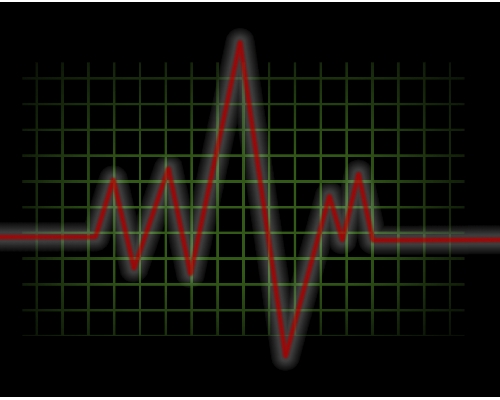|
What's the best frequency?
to collect data?
That could be, with rapid frequency, be called a silly question couldn't it! Like displaying the collected data for instance, that would then be a waste of time collecting it in the first place. There is also the matter of processing time for the displaying the updated information. Keeping your finger on the pulse of changing data is not a simple as it may first appear. How much data is being tracked and how fast is it changing, are some of the questions that need answering first. In layman's terms, frequency is basically the number of times an event occurs within a given time period. Generally it's expressed with reference to a standard unit of time, such as miles per hour (MPH). Or revolutions per minute (RPM) and cycles per second (hertz, abbrv Hz). Hz is the abbreviated form for Hertz meaning cycles per second. The International System of Units (abbreviated SI from the French, Le Système international d'unités) adopted the hertz symbol (Hz) as the standard unit of frequency. Put simply, one hertz means a frequency of once a second, ten hertz means a frequency of ten times a second, etc. The hertz unit may be applied to any timed event, a clock could be said to tick at 1Hz, once a second. Or a bee may beat its wings at 120Hz, one hundred and twenty times a second. As with all and any of SI units, Hz is sometimes prefixed. The more commonly used multiples are kilohertz expressed as kHz, this is hertz X 1000 or 103 Hz. Then comes megahertz which is expressed as MHz, this is hertz X 1,000,000 or 106 Hz. That's not all though, after that there's gigahertz - GHz, hertz X 1,000,000,000 or 109 Hz and terahertz - THz , hertz X 1,000,000,000,000 or 1012 Hz. The Hertz is named after the German physicist Heinrich Rudolf Hertz, who made important scientific contributions to electromagnetism. The name was established by the IEC in 1930 [1]. It was adopted by the CGPM (Conférence générale des poids et mesures) in 1960, replacing the previous name for the unit, cycles per second (cps), along with its related multiples, primarily kilocycles per second (kc/s) and megacycles per second (Mc/s). So where was I, ah yes, the frequency data information is collected within a system will be quite dependent on how quickly the actual data information itself changes. In all but special cases I would say that this would have to be no slower than every ten minutes. Any longer than this period would not be detailing what's actually going on. The optimum time scale to collect the information data from machines on a machine information system is also governed by the frequency data changes through out the whole system. Quite often machine speeds are quite varied depending on the jobs they are doing within the production process. The production process rate, as a whole, is how many completed units are produced per hour. However on some machines within this production process may well see some data rates many times that. I personally would recommend that the fastest machine has priority to govern the rate of data collection. The slower machines would then be updated more than needed but this wouldn't matter. The other way round, with the data collection speed being governed by the slower machine(s), the information would change in very big lumps on the faster machines. This means on the fast machines, the data could be up to one or more lumps adrift at any given time. In other words not accurate. When all is said and done collecting data at a rate faster than it changes is not a bad thing unless your computer has other CPU intensive tasks to perform. If this is done much faster than needed on a shared tasks host computer, it may well hold up other actions or programs running. A decision would then have to be taken as to whether this would be ok or to give the system a dedicated computer to run on. Return to the Computer Software page. Return from Frequency page to Home.
|
